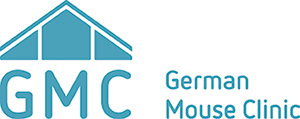In a common effort, scientists of the German Mouse Clinic and Turku University examined the immune system of genetically modified mice that develop high estrogen levels in males. Applying in vivo and molecular phenotyping approaches, the researchers showed that an imbalanced circulating estrogen to androgen ratio in male mice feminized their immune response. Furthermore, their B cell function was altered, and the risk of autoimmune diseases was enhanced. The study was published recently in Scientific Reports.
Sex steroids, such as estrogens and androgens, are important regulators of the immune response. Studies in female mice have demonstrated that alteration of circulating estrogen concentration regulates antibody-mediated immunity. In addition, epidemiological data in humans show an increased incidence of autoimmune disorders and allergies in females. Males have usually little endogenous estrogen.
In this study, transgenic male mice expressing human aromatase (AROM+) were immunologically examined. These animals have a high circulating estrogen to androgen ratio (E/A), leading to female traits such as gynecomastia. The AROM+ male mice had significantly higher plasma immunoglobulin levels, particularly IgE. Flow cytometry analyses of splenocytes revealed changes in mature/immature B cell ratio together with a transcriptional upregulation of the IgH locus. A higher proliferation rate and increased IgE synthesis under in vitro IgE class-switching induction was observed. The allergic response in AROM+ male mice tested by the ovalbumin airway challenge model, revealed an increase in IgE with no impact on immune cell infiltration into the lungs.
The findings suggest that high circulating E/A ratios in males significantly alters B cell function without any significant enhancement in allergic inflammation. The function of splenic B cells as well as their gene expression profile indicates that steroid hormones directly influence B cells in the spleen in a sex-dependent manner.
Defining the role of the genes in the activation of B cells leading to immunoglobulin production will not only help to understand the mechanism of class switching, but may also provide insights into defective IgE responses and allergic or autoimmune pathogenesis.
Aguilar-Pimentel JA, Cho YL, Gerlini R, Calzada-Wack J, Wimmer M, Mayer-Kuckuk P, Adler T, Schmidt-Weber CB, Busch DH, Fuchs H, Gailus-Durner V, Ollert M, Hrabě de Angelis M, Ohlsson C, Poutanen M, Teperino R, Strauss L. Increased estrogen to androgen ratio enhances immunoglobulin levels and impairs B cell function in male mice. Sci Rep. 2020 Oct 27;10(1):18334. doi: 10.1038/s41598-020-75059-9. PMID: 33110090; PMCID: PMC7591566.


